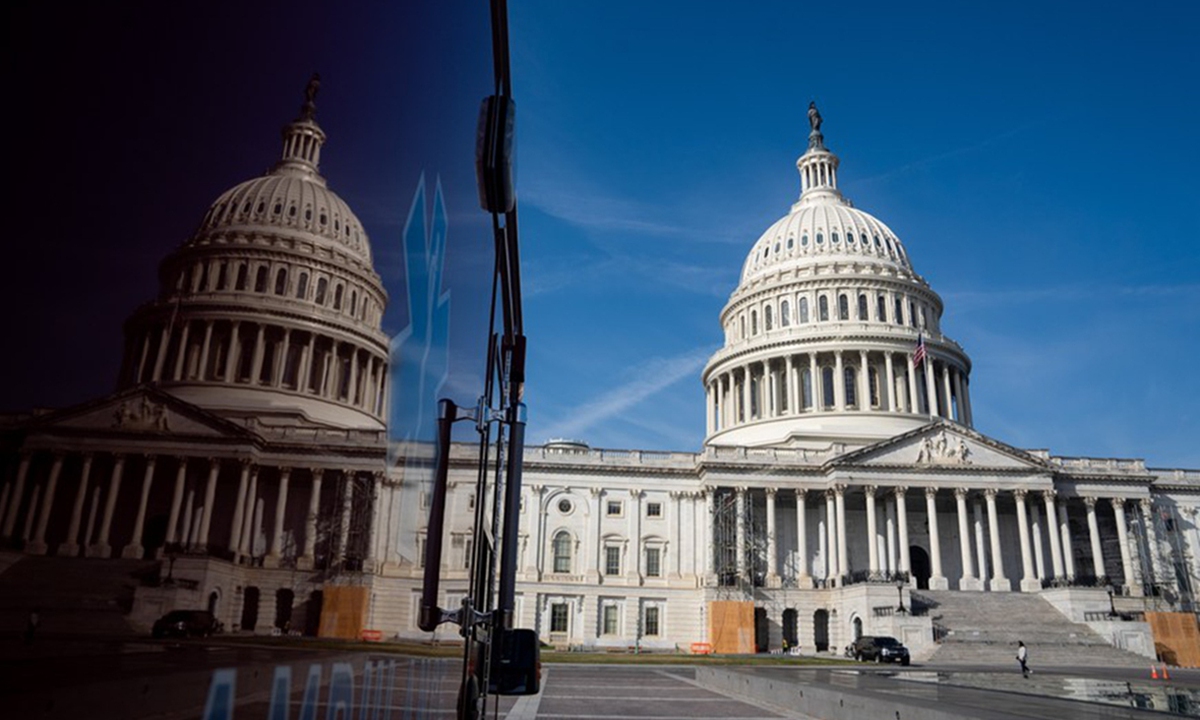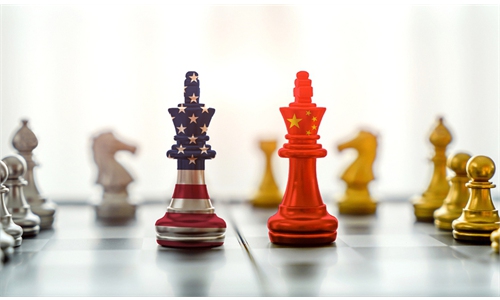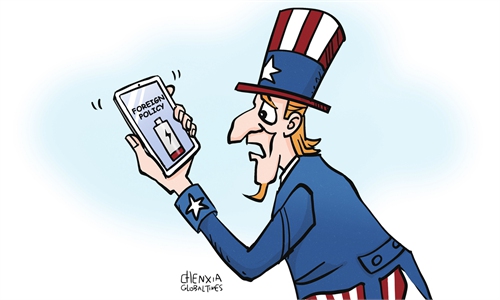
The US Capitol building is seen in Washington, DC., on November 4, 2022. Photo: Xinhua
As high-level communication between China and the US resumes, an anti-China vanguard groupuscule in the US House of Representatives is getting even more fidgety. By hyping some twice-told tales about the "big bad China," they try to show their presence and sabotage the improvement of bilateral relations.
The US House Select Committee on Strategic Competition between the US and the Chinese Communist Party on Wednesday approved two reports regarding China's Xinjiang and the island of Taiwan as its first set of policy recommendations, hoping some of its recommendations will become law this year.
Formed in January, the bipartisan committee and its members have constantly made provocative moves on China-related issues, trying to prove its value to the US Congress.
For instance, it has held several hearings in a fanfare way to attack China on various topics, such as TikTok, Taiwan, economic and trade, and human rights.
In April, the panel engaged in a table-top simulated war game exercise over a possible conflict in the Taiwan Straits. On the surface, it concluded that "nobody wins when deterrence breaks down," as the committee leader, Mike Gallagher, put it. But, in fact, it was a disguised attempt to encourage the US to strengthen its military intervention in the Straits.
Later that month, members of the committee also traveled to California with House Speaker Kevin McCarthy to meet with Taiwan regional leader Tsai Ing-wen, disregarding strong opposition from the Chinese side.
In some way, the panel works as a policy incubator for Congress. Its members aim to form some consensus in their small circle and then propose and promote it in other bigger and more important committees. It is like delivering bullets to other panels and the leaders of the House that strive to shoot at China all the time.
Besides, all the 24 representatives in this committee share one similarity: They hold an extremely negative and hawkish attitude toward China, making the group a veritable anti-China vanguard in Congress. Working as a small group means their anti-China endeavors can become more well-planned and well-organized. As important sources for the Congress's possible agenda against China, these US lawmakers actually live off by bashing China and use China-related issues to gain more exposure in US public opinion and climb up the political career ladder further.
The contrast between the provocative House panel and the White House's desire to ease the tension with China shows that some US lawmakers and government officials do not entirely agree with each other on China-related issues. At the congressional level, more emphasis was placed on the saber-rattling geopolitical competition with China with strong ideological hues.
Thus, it is no surprise that some Members of Congress are unwilling to see the stabilization of China-US ties. Their sensationalist political posturing reveals the sinister intentions to destroy China-US relations or to push the two countries into a new cold war.
Yet, even within the US government, it's hard to find a common understanding of how to deal with China. The announcement of Rick Waters, the State Department's top China policy official, stepping down and Deputy Secretary of State Wendy Sherman retiring underscore the divergences among officials in Washington over which path to take in relations with China.
Overall, it is rather challenging for US President Joe Biden to unify the administration's opinion and approach to China. And even if he does, a Congress that advocates a tougher China policy will still hinder the implementation.
"The current situation also reflects the limitation of the Biden administration's China policy; that is, pursuing dialogue and engagement with China while thinking about suppression and restriction is impossible. If Washington continues to adhere to these two contradictory mentalities, it will never achieve the result it wants, Zhang Tengjun, deputy director of the Department for Asia-Pacific Studies at the China Institute of International Studies, told the Global Times.
As extremism in US politics has long hijacked the country's policy toward China, we should not expect Washington's China strategy to return to a rational and normal track soon. And it is a shame that US diplomacy, all along, cannot get rid of the aggravated interference and intervention of the extreme China hawks.



